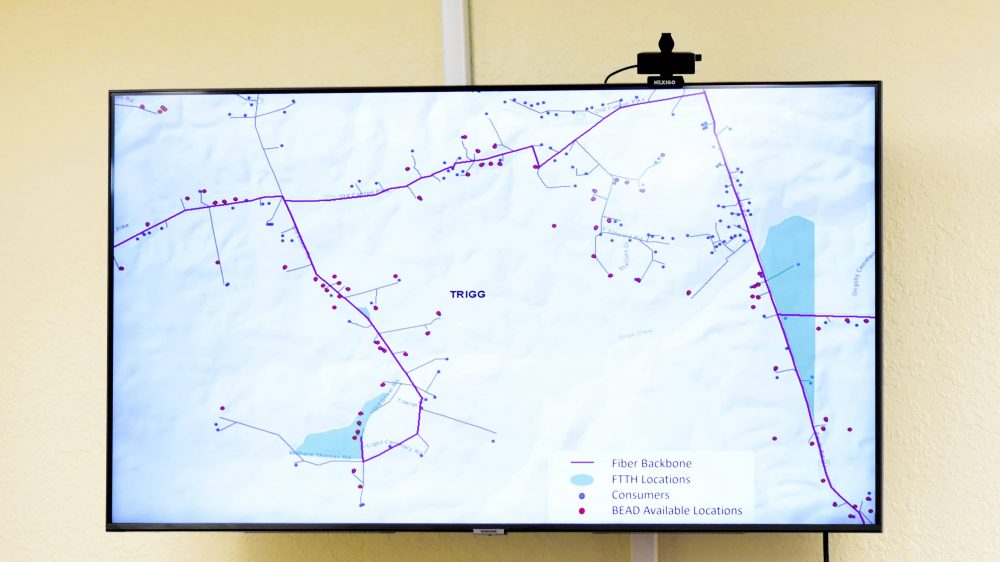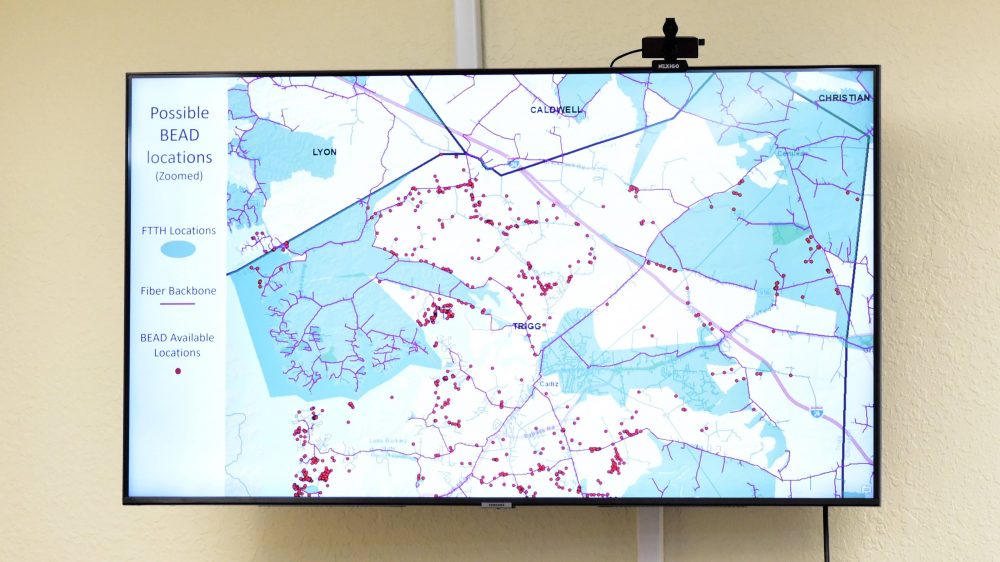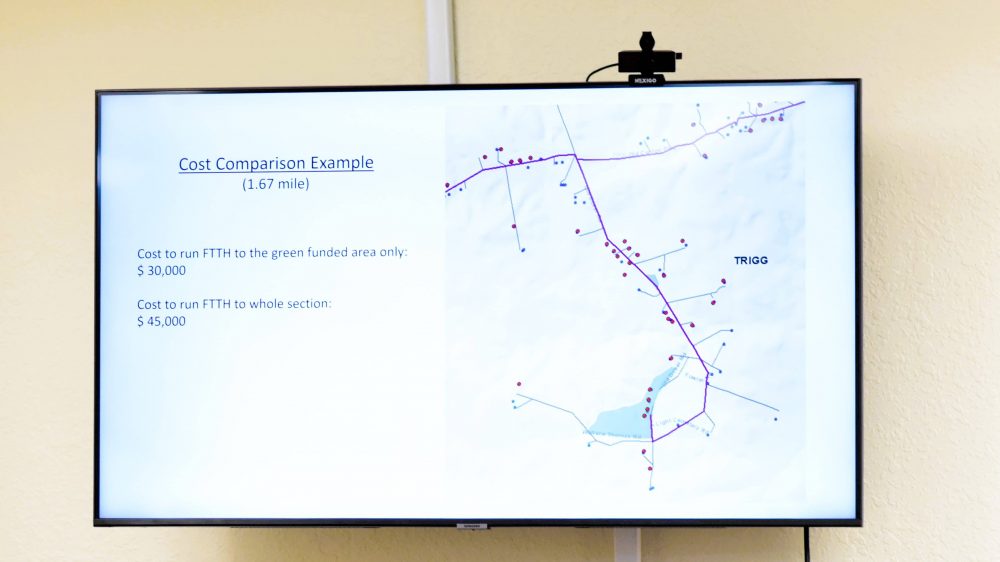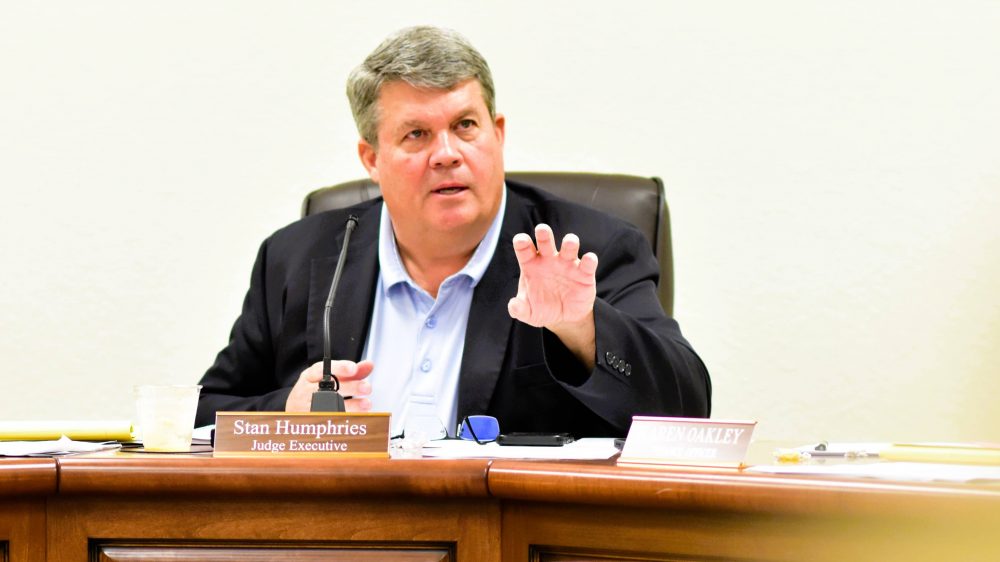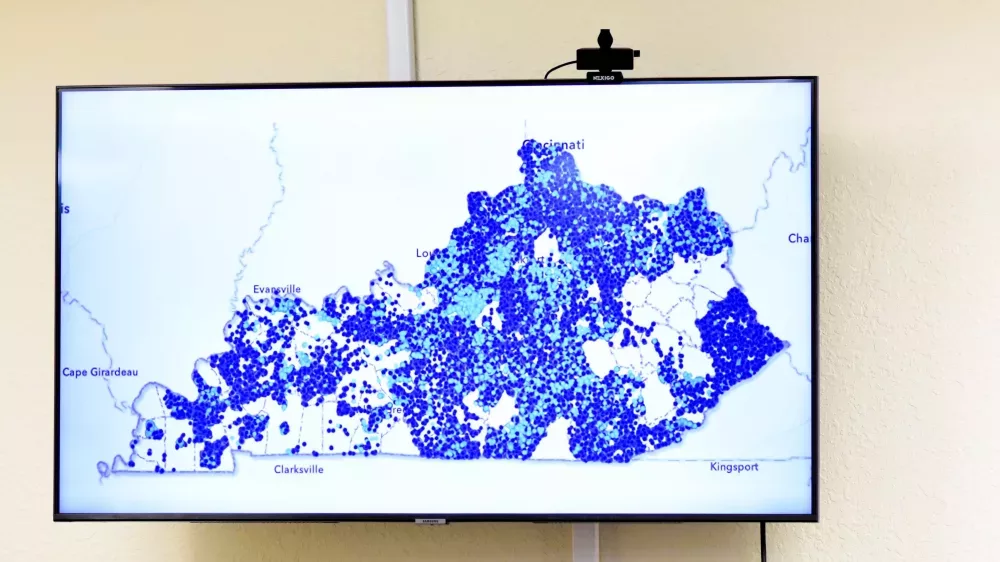
The puzzle of providing Trigg County full-coverage fiber internet service is as meticulous as it is monetarily messy.
Regardless, Pennyrile Electric President & CEO Alan Gates brought a message of clarity and coordination during Monday night’s Trigg County Fiscal Court meeting — noting patience, time and successful applications for the coming Broadband Equity, Access, And Deployment (BEAD) Program tranches this summer could be the difference between angry customers without high-speed access, and flying fast on the world’s information highway.
A project now more than four years old, this build was first supported with federal American Rescue Plan Act dollars, and Gates noted the current facts for Cadiz and its surrounding burghs are clear.
At present:
+ Trigg County has 9,881 total potential fiber customers.
+ As of this past weekend, 6,553 customers have had infrastructure pass their homes.
+ This means 3,328 customers still need construction.
+ Going into Monday, 2,455 customers are signed up for service through Hopkinsville Electric System.
+ Transmission lines totaling 476 miles have already been built.
+ But 352 miles remain for full coverage.
Furthermore, Gates once again iterated that all original funding through ARPA and the Kentucky Infrastructure Authority first went to those unserved and underserved in the the state’s communities.
However, Gates said an unnamed wireless provider originally claimed it covered Trigg County effectively with its wireless internet service, when in reality, it didn’t — and still doesn’t.
Gates also said that under Pennyrile’s purview, four counties are entirely built out, and three counties remain unfinished — Trigg County being the most difficult to complete.
Gates, Pennyrile’s Manager of Information Technologies Frances Henderson, HES/energynet’s Telecommunications Services Leader Timothy Griffey and multiple magistrates iterated that irate Trigg Countians have been ringing the phones on a weekly, sometime daily, basis — seeking answers about its arrival.
As an example, Gates specifically pointed to Old Dover Road, where several families are enjoying the fruits of fast connectivity, while nearby neighbors — many of them along the South Road — are anxiously awaiting support.
Gates said that if Trigg County does receive BEAD funding, talks of completion could truly resume.
Henderson and Griffey confirmed that, on average, dropping connections from pole to the home can cost roughly $1,500 — but even that would widely vary, depending on the home’s location in comparison to the network.
Gates said that if everything runs smoothly, Pennyrile will receive around $2.3 million in BEAD funding for Trigg County, which would help connections for another 2,300 customers. It would still leave around 1,000 without the option until other provisions were made.
In order to further assure the funding arrives, Gates said evidence of community support would go a “long way” toward the process. Examples of evidence, Gates added, could include local government letters endorsing the projects and describing the need for broadband improvements, resolutions of support from local governments, matching funds commitments, as well as minutes and/or records of public meetings where project proposals were discussed.
Magistrate Alana Baker-Dunn, however, brought forth a question on all of fiscal court’s mind.
Among Trigg County’s other build-out issues are its topography and its population spread outside of the Cadiz city limits — both of which are roadblocks.
